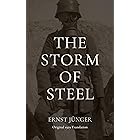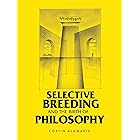| Print List Price: | $21.95 |
| Kindle Price: | $18.98 Save $2.97 (14%) |
| Sold by: | Amazon.com Services LLC |
Your Memberships & Subscriptions

Download the free Kindle app and start reading Kindle books instantly on your smartphone, tablet, or computer - no Kindle device required.
Read instantly on your browser with Kindle for Web.
Using your mobile phone camera - scan the code below and download the Kindle app.

OK
The Forest Passage Kindle Edition
- LanguageEnglish
- Publication dateJanuary 10, 2016
- File size1181 KB
Customers who bought this item also bought
Editorial Reviews
About the Author
Product details
- ASIN : B01AGL4KI0
- Publisher : Telos Press Publishing (January 10, 2016)
- Publication date : January 10, 2016
- Language : English
- File size : 1181 KB
- Text-to-Speech : Enabled
- Screen Reader : Supported
- Enhanced typesetting : Enabled
- X-Ray : Not Enabled
- Word Wise : Enabled
- Sticky notes : On Kindle Scribe
- Print length : 120 pages
- Best Sellers Rank: #554,303 in Kindle Store (See Top 100 in Kindle Store)
- #127 in Radical Thought
- #146 in Anarchism
- #495 in Political Philosophy (Kindle Store)
- Customer Reviews:
About the author

Discover more of the author’s books, see similar authors, read author blogs and more
Customer reviews
Customer Reviews, including Product Star Ratings help customers to learn more about the product and decide whether it is the right product for them.
To calculate the overall star rating and percentage breakdown by star, we don’t use a simple average. Instead, our system considers things like how recent a review is and if the reviewer bought the item on Amazon. It also analyzed reviews to verify trustworthiness.
Learn more how customers reviews work on Amazon-
Top reviews
Top reviews from the United States
There was a problem filtering reviews right now. Please try again later.
The following is a relevant passage from the book:
"Fear is symptomatic of our times - and it is all the more disturbing as it comes on the heels of an epoch of great individual freedom, in which hardships of the kind portrayed by Dickens were already virtually forgotten.
How did such a shift come about? If we want to pick out a turning point none could be more appropriate than the day the Titanic went down. Here light and shadow collide starkly: the hubris of progress with panic, the highest comfort with destruction, and automatism with a catastrophe manifested as a traffic accident.
In fact, the growing automatism is closely connected with the fear, in the sense that man restricts his own power of decision in favor of technological expediencies. This brings all manner of conveniences - but an increasing loss of freedom must necessarily also result. The individual no longer stands in society like a tree in a forest; instead, he resembles a passenger on a fast-moving vessel, which could be called Titanic, or also Leviathan. While the weather holds and the outlook remains pleasant, he will hardly perceive the state of reduced freedom that he has fallen into. On the contrary, an optimism arises, a sense of power produced by the high speed.
All this will change when fire-spitting islands and icebergs loom on the horizon. Then, not only does technology step over from the field of comfort into very different domains, but the lack of freedom simultaneously becomes apparent - be it in a triumph of elemental powers, or in the fact that any individuals who have remained strong command an absolute authority."
The introduction references the Anarch, describing "The Forest passage" as a useful stepping stone to understanding "Eumeswil", as the reader can follow the development of Junger's philosophy through his post-war works. Written two decades prior to "Eumeswil", "The Forest Passage" seems to be the point of inflection for Junger's corpus, but having read only this work at present date, I certainly am no authority on the manner.
I've now purchased "Storm of Steel" and "On Pain" as his next works to read. I hope to be able to read his magnum opus "Eumeswil" sometime following my acquisition of the previous.
ü









